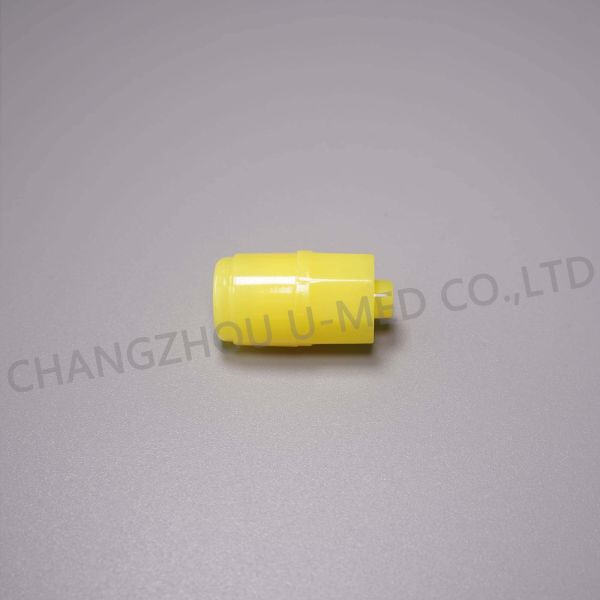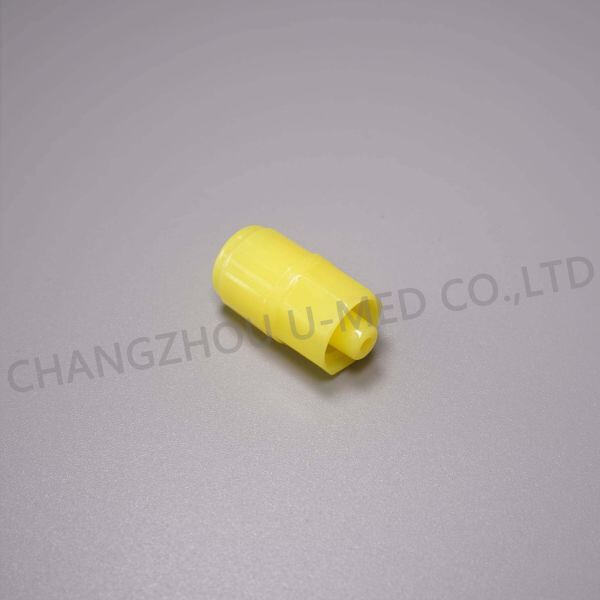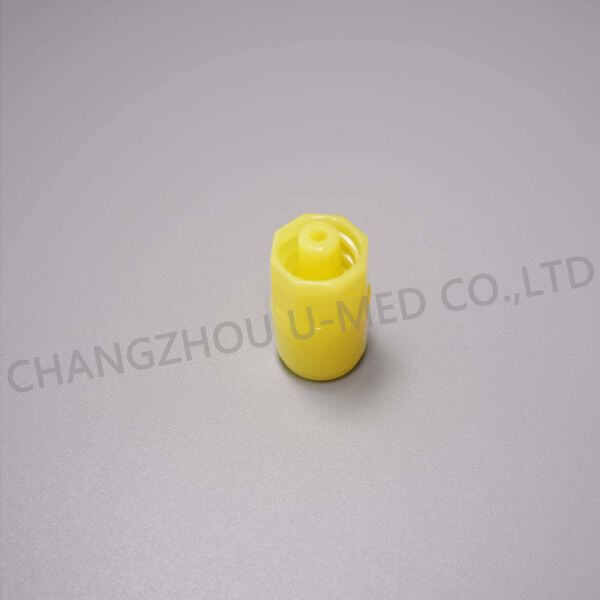Quando le persone si ammalano o si feriscono, spesso devono andare in ospedale e essere trattate da medici e infermieri. A volte dovranno anche essere ricoverate per alcuni giorni o più. Lì potrebbero aver bisogno di medicina somministrata nel loro flusso sanguigno tramite un tubo speciale. La vena è un vaso sanguigno a cui viene collegato il tubo. Quando questo tubo non è usato frequentemente, può accumulare sangue causando la cosa peggiore nota come coagulo sanguigno.
Se si forma all'interno del corpo vicino a un organo importante, come il cuore o il cervello, questi coaguli possono essere molto pericolosi poiché bloccano il flusso di sangue in quelle aree. Gli ospedali utilizzano un tappo speciale chiamato tappo con epinefrina per questo motivo. Il tappo impedisce inoltre ai coaguli di entrare nel tubo, garantendo così che non ci sia alcun ostacolo al flusso.
Un tappo a heparina è un piccolo coperchio sintetico che si adatta all'estremità di un tubo inserito nella vena problematica. Questo tappo contiene una piccola quantità di heparina. Questo è molto importante perché impedisce la formazione di coaguli sanguigni nel tubo. Ciò mantiene il tubo aperto in modo che il medicinale possa essere pompato all'interno, raggiungendo tutte le membra dove deve arrivare.
I tappi a capsule di eparina sono inoltre progettati per essere semplici e immediati quando si tratta di igiene. La capsula si avvitona alla fine del tubo in modo da mantenere tutto saldo e stretto. In questo modo, fintanto che il tubo è chiuso, una capsula non scivolerà accidentalmente e il tubo manterrà la propria funzionalità. Queste sono state progettate con un materiale specifico che impedisce la crescita dei batteri su di esse, quindi non si sporcano dopo l'uso ripetuto.

Il tappamento con la capsula di eparina richiede molto poco. C'è solo una capsula normale alla base di questo tubo, il che significa che devi semplicemente svitarla e sostituirla con un tappo a sfera di eparina. Una volta che la CAP è ben posizionata, aiuterà a mantenere la tua linea pulita e funzionante perfettamente con l'eparina contenuta all'interno della siringa bloccata dal cappuccio.

Quando uno di questi tubi si ostruisce con un coagulo sanguigno, possono esserci poche opzioni per riparare quell'area estrema. Ciò può significare che il medicinale somministrato dal tuo trattamento potrebbe non riuscire ad arrivare dove deve... E questo potrebbe essere un problema serio. Tuttavia, puoi alleviare i problemi di ostruzione sostituendo regolarmente il tappo dell'eparina in modo che mantenga la tua linea aperta e consegnando il farmaco come previsto.

Questi tappi sono fatti di materiali specifici per aiutare a controllare la crescita dei batteri. Vale a dire, per coloro che usano lo stesso tappo ripetutamente, questo non diventerà carico di batteri. Inoltre, i tappi di un tappo di eparina sono generalmente destinati all'uso singolo e al successivo smaltimento. Questo viene fatto per garantire che i germi non si trasferiscano da un paziente o residente, a seconda del caso, ad un altro.